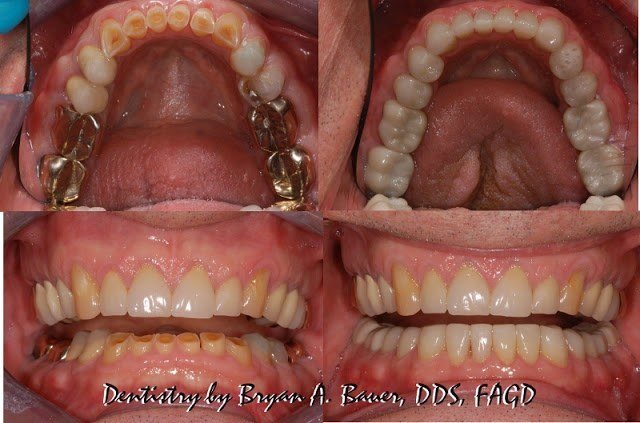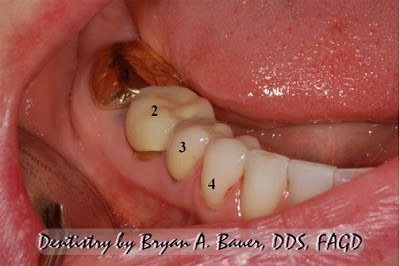Dental Crown
When do you need a dental crown or dental cap?
Sometimes it is obvious that you need a dental crown and other times it is more of a preventive action and is highly subjective. A dental crown covers a tooth and restores it to its normal shape and size. We can use them together with other dental crowns to bridge an area that is missing a tooth. A dental crown also covers a dental implant. The most common reasons for getting a dental crown are
- Tooth has a large filling and has broken
- When a tooth has a large filling and now has more decay
- Tooth has a large filling and deep fractures (not superficial cracks – often hard to know if crack is deep or not so this is subjective)
- When a tooth has cracked tooth syndrome – basically means it hurts when you bite on it wrong. May need to have a root canal as well.
- A tooth that has a root canal or is getting a root canal (front teeth often do not need a crown even with a root canal, more on that here)
- Tooth has very little actual tooth structure left that isn’t filling and is starting to appear weak – this is preventive and subjective so tough to say when the “right” time to crown is



